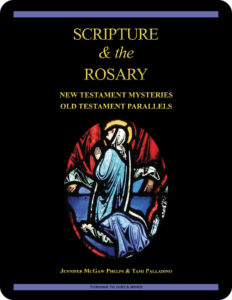Easter
 We now have entered the Easter season. The word Easter comes from Middle English and has no significant value to Christianity. The season itself, however, has roots in our Jewish past and should be celebrated in that context.
We now have entered the Easter season. The word Easter comes from Middle English and has no significant value to Christianity. The season itself, however, has roots in our Jewish past and should be celebrated in that context.
The Jewish feast forever transformed by the Resurrection of Jesus Christ is the Passover, the commemoration of the delivery of the people from slavery in Egypt. The culmination and end point of the season can be found in the celebration of Pentecost, related to the Greek word for 50, which occurs seven weeks after Easter. Tradition holds that God gave the law to Moses on Mount Sinai on Pentecost.
As we enter this Easter season, we should reflect on why we take 50 days to celebrate this season while we only take 40 days to observe Lent. What does this say about how Christians should view the role of suffering and deprivation? What are we now working toward and looking forward to? How will you celebrate the Easter season?
related topics: Pentecost
you also may like our study of Scripture & the Rosary (digital only)
 Scripture & the Rosary: New Testament Mysteries, Old Testament Parallels, a 26-lesson Catholic Bible study with an imprimatur, looks at the biblical foundations of the Rosary. The study includes lessons on Pope St. John Paul II’s Rosarium Virginis Mariae (Rosary of the Virgin Mary), the Apostles’ Creed, and the Luminous Mysteries as well as the original 15 Mysteries of the Rosary. Color photographs of stained glass windows depict key scenes in the lives of Jesus and Mary. Free digital lessons rotate throughout the year on our website.
Scripture & the Rosary: New Testament Mysteries, Old Testament Parallels, a 26-lesson Catholic Bible study with an imprimatur, looks at the biblical foundations of the Rosary. The study includes lessons on Pope St. John Paul II’s Rosarium Virginis Mariae (Rosary of the Virgin Mary), the Apostles’ Creed, and the Luminous Mysteries as well as the original 15 Mysteries of the Rosary. Color photographs of stained glass windows depict key scenes in the lives of Jesus and Mary. Free digital lessons rotate throughout the year on our website.
 Click on the picture of the statue of Moses with horns (above) to learn more about Lost in Translation. A new entry is archived each Monday. Contact us to receive Lost in Translation by email every week. You may use any of the contact links on our website to ask Matthew a question.
Click on the picture of the statue of Moses with horns (above) to learn more about Lost in Translation. A new entry is archived each Monday. Contact us to receive Lost in Translation by email every week. You may use any of the contact links on our website to ask Matthew a question.
